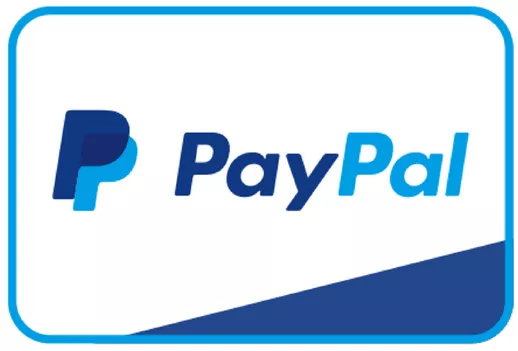The first third-party payment institution wholly controlled by foreign capital was renamed. Recently, according to tianyancha information, guofubao Information Technology Co., Ltd. (hereinafter referred to as guofubao) changed its industrial and commercial information and its enterprise name was changed to PayPal payment (Beijing) Co., Ltd. (hereinafter referred to as PayPal payment). The relevant person in charge of PayPal China told the Securities Daily, "the renaming of guofubao enterprise has been reviewed and approved by the central bank. As a wholly-owned subsidiary of PayPal in China, Paypal will continue to bring safe, compliant and convenient cross-border payment experience to Chinese users."

Guofubao changed its name to "PayPal payment"
In fact, the renaming of PayPal is a continuation of PayPal's previous acquisition of 100% equity of licensed payment institution guofubao. As early as 2019, the central bank approved the application for equity change of guofubao, and paypal acquired 70% equity of guofubao through its meiyinbao information technology (Shanghai) Co., Ltd. By 2021, PayPal's acquisition was overweight again, realizing 100% control of guofubao. So far, guofubao has become the first third-party payment institution wholly controlled by foreign capital in China.
The reporter noted that at present, the name of the institution on the official website of the central bank is still displayed as guofubao and has not been renamed. Statistics show that guofubao was established in January 2011 and the payment license is valid until December 21, 2026.
"In fact, 'PayPal' is a transliteration of PayPal, which can also be understood as the Chinese name of international payment giant PayPal." Wang Pengbo, a senior analyst in the financial industry of Broadcom consulting, told the Securities Daily that the equity acquisition has been completed. The renaming means that the cutting has been completely completed before. After the renaming, it is more closely connected with the parent company from the perspective of brand.
Statistics show that PayPal is a US listed company on NASDAQ and a leading third-party payment enterprise in the world. Its business covers more than 200 countries and regions around the world, has more than 400 million active payment accounts and supports transactions in more than 100 currencies around the world.
The reporter noted that after PayPal completed the acquisition of guofubao, it continued to move. According to tianyancha information, since the beginning of 2020, the legal representative and senior executives of guofubao have changed many times. For example, at the beginning of 2020, the legal representative and chairman of the board were changed from Tong Fu to Li Jin, and many former directors and supervisors withdrew; Chairman Qiu Han and legal representative in January 2021. Up to now, the latest appointment of senior executives is that the legal representative and chairman are Qiu Han, vice chairman Yu Jianing, director An Jun, etc.
Meanwhile, the registered capital of guofubao increased from 143 million yuan to 2.434 billion yuan. In addition, in December 2021, in the publicity information on the renewal of the payment business license of non bank payment institutions released by the central bank, the business type of guofubao changed and did not apply for the renewal of prepaid card issuance and acceptance (Hainan Province, Shaanxi Province, Yunnan Province, Hunan Province and Beijing). At present, there are only two business types of guofubao payment license: Internet payment and mobile phone payment, covering the whole country.
"The renaming of PayPal indicates that PayPal has completely completed the control and power transfer of guofubao." Su Xiaorui, senior analyst of Analysys analysis financial industry, said that it is expected that the follow-up PayPal payment will form synergy with the main business of PayPal and make efforts in cross-border payment business.
Cross border field or its main starting point
PayPal was once considered as a strong competitor of Alipay and wechat payment after its entry. Now, how the renamed PayPal payment will develop in the future and whether it will have an impact on the existing domestic payment pattern is still a topic of concern in the payment industry. The industry generally believes that PayPal is difficult to shake the existing domestic payment pattern in the future, and the starting point may be aimed at the field of cross-border payment.
Yin Zhentao, director of the financial technology office of the Institute of finance of the Chinese Academy of Social Sciences, interpreted the reporter of Securities Daily that "as a foreign-funded payment giant with a high degree of internationalization and rich experience in cross-border payment, PayPal may concentrate resources to vigorously develop cross-border payment business in the future, give full play to the original business advantages of guofubao, and cultivate and form differentiated competitiveness on this basis."
"At present, the domestic payment market pattern is stable. PayPal payment will not shake the existing payment pattern in a short time. PayPal has no great advantage in the layout of the domestic market." Wang Pengbo believes that PayPal's entry into the domestic payment market will help the industry cultivate innovation, drive new competition mechanism and further optimize the payment industrial structure. Making cross-border payments with PayPal's established global payment network will be an important starting point and key layout area of PayPal payment in the future.
Huangdazhi, a researcher of Xingtu Financial Research Institute, agreed with the above statement. He analyzed the reporter of Securities Daily and said, "the advantage of PayPal is in the field of international cross-border payment. Compared with Alipay and wechat, PayPal has an earlier and broader layout in the field of international payment. Compared with the domestic payment field, the market prospect of cross-border payment is broader. From this, it can be judged that the layout of PayPal should mainly fall in the field of cross-border payment."